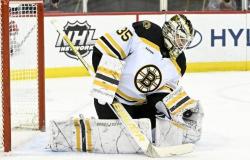Last Saturday, June 1, 2024, during the three Regional Assemblies in Ascona (TI), Konolfingen (BE) and Vallorbe (VD), the clubs approved an in-depth review of the strategy for training the next generation under the name “ Impact +1”. They have thus set an important milestone for the future of Swiss ice hockey.
The next generation of Swiss ice hockey has been trained in the current age structure (U9 to U20) for almost 20 years. However, ice hockey has grown considerably over the past two decades. In the wake of increasing professionalization, the demands in the sporting field are constantly increasing. The Swiss ice hockey landscape has also undergone certain changes at the structural level, both in elite sport, in performance sport and in recreational sport.
Too early, too limited and career opportunities too late
An objective and comprehensive analysis of the structures carried out during the 2022/23 season revealed positive trends, but also some significant systemic weaknesses. In particular, licenses, dropouts, age and league structures, selection ships, entry age and ice time in active leagues, training content or career developments were examined. ‘in the NHL. The general picture shows, on the one hand, selection times that are too early and prone to errors and, on the other hand, increasingly late possibilities for access to professional and semi-professional ice hockey. Analyzes of licensing developments show that there is potential for optimization and growth for leisure sport. In order to address these weaknesses and strengthen our position compared to other leading European nations, the succession strategy has been reworked in close collaboration with the clubs.
Impact +1: more than an adaptation of structures
Measures introduced since the 2022/23 season, such as flexible level transitions, show clear positive trends. . Regarding new licenses from the U9 level to the U20 level, Swiss Ice Hockey recorded new records compared to previous years, both for boys and girls. In addition to the structural adaptation, which defines the basic framework and plans to move the age pyramid upwards by one year, several additional measures have been defined from ice hockey schools to the professional level. Some of these measures have already been successfully introduced. Supervision of clubs by regional instructors in ice hockey for children, new didactic means in training coaches, the “Hockey is more” recruitment and image campaign, specific promotional instruments for girls , coach mentoring programs or even extensive international agreements and an increasing professionalization of junior national teams are just some of these measures.
A common opportunity for leisure sport and elite sport
Thanks to “Impact +1” longer and more flexible entry windows into ice hockey are available to children up to U12 level. With 36 U14-Elit teams and 24 U16-Elit teams, Swiss Ice Hockey extends the promotion of talents for another year, deepens it and regionalizes it more strongly. The flexible transition between levels and taking into account the degree of development should make it possible to better promote individuality and potential. At the top of the current succession structure, i.e. the U17 and U20 leagues with limited exceptions (overage rules), Swiss Ice Hockey is now setting up an U18 league and an U21 league. The goal is to ensure an individual transition into active leagues, regardless of level. Regional cooperation and the FTEM training concept according to Swiss Olympic are thus further strengthened.
With this adaptation, Swiss Ice Hockey hopes that this adaptation will make it possible to sustainably strengthen leisure sport, performance sport and elite sport. The adaptation will follow the 2025/2026 season.
“We are very pleased that ‘Impact +1’ has been adopted in all three regions and thank the clubs for the joint and constructive development of this project. This is an important step in revising the succession strategy as the foundation of Swiss ice hockey,” says Lars Weibel, sports director of the Swiss Ice Hockey Federation.





